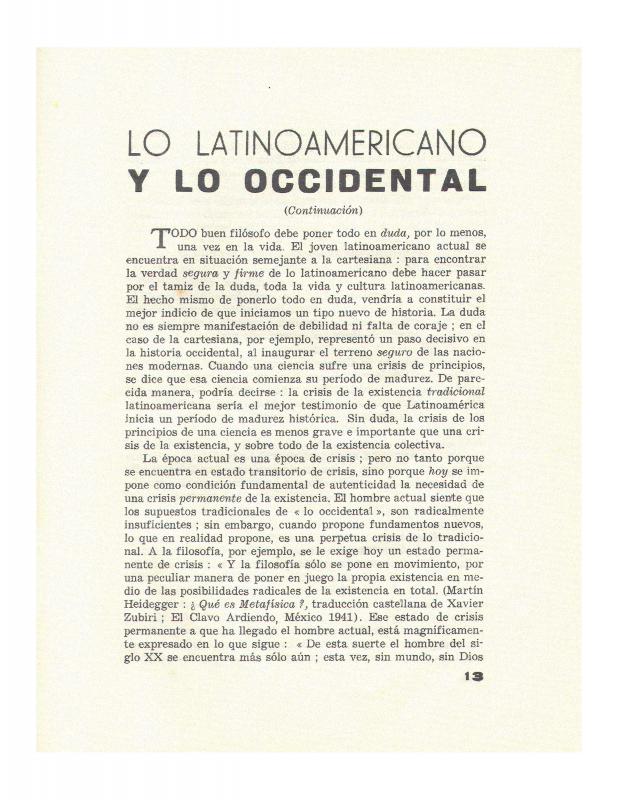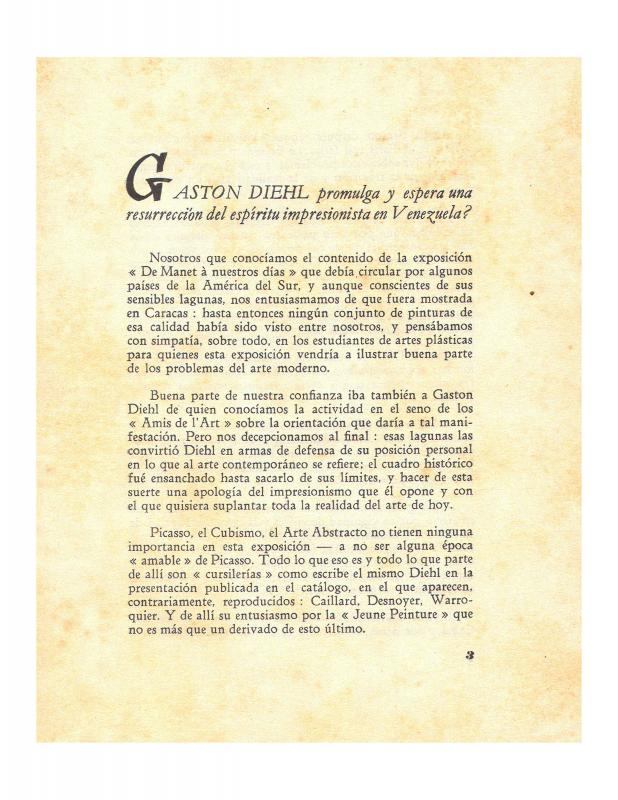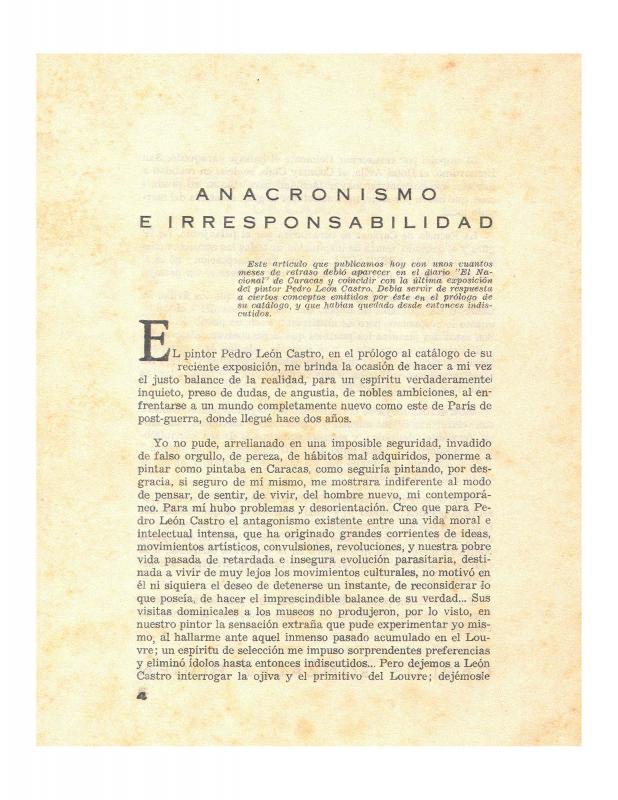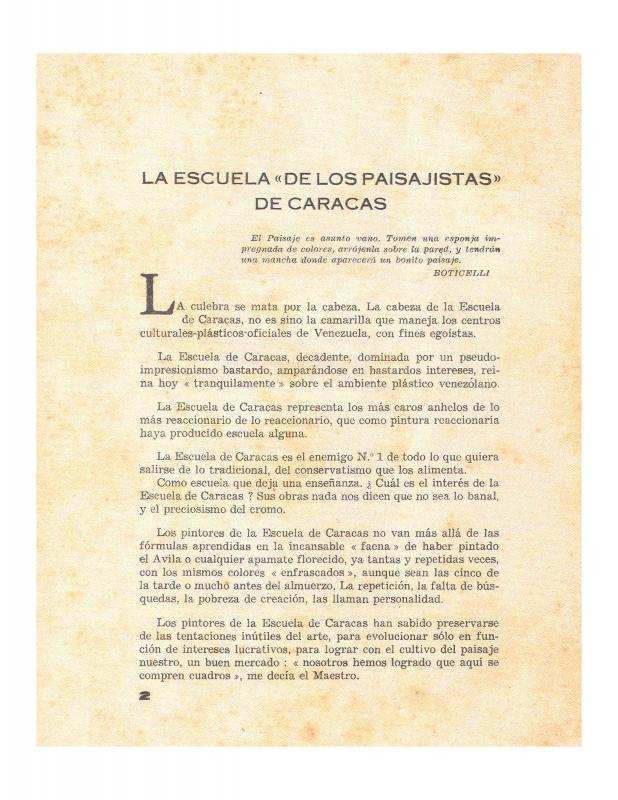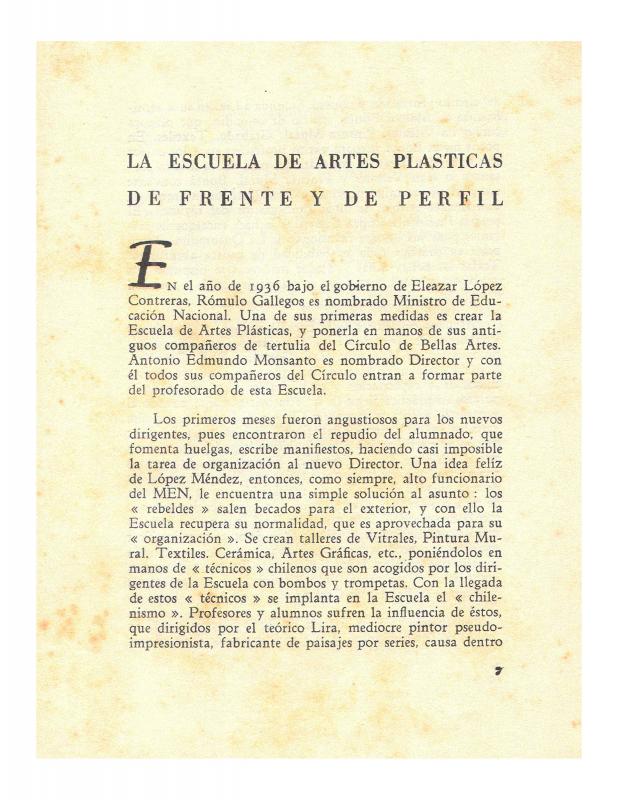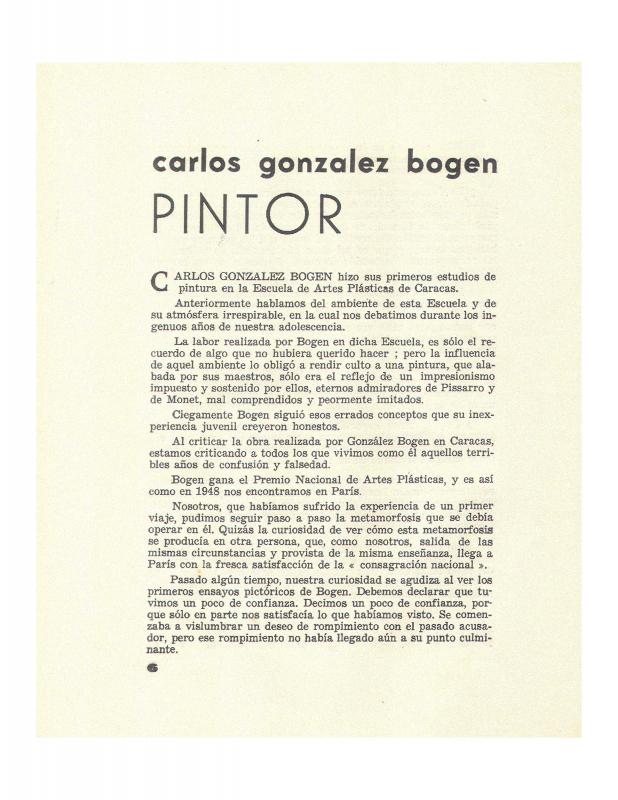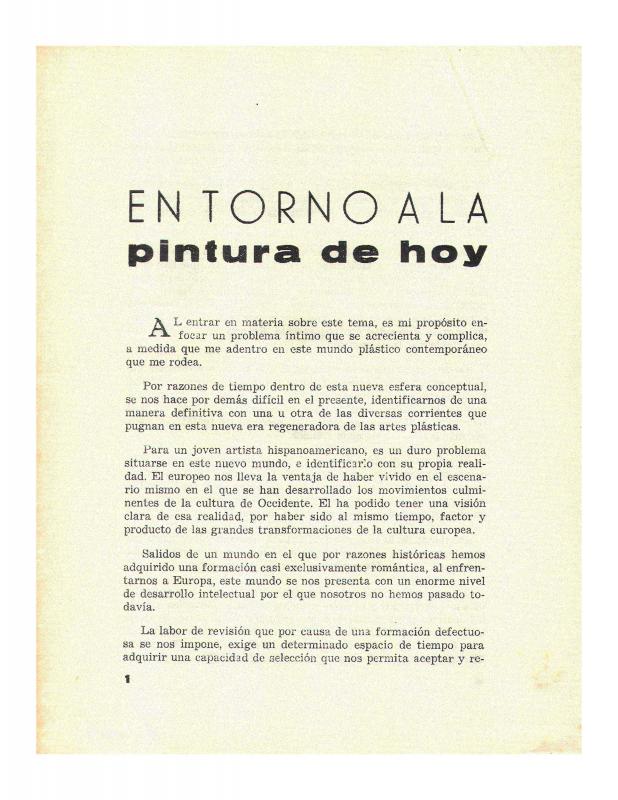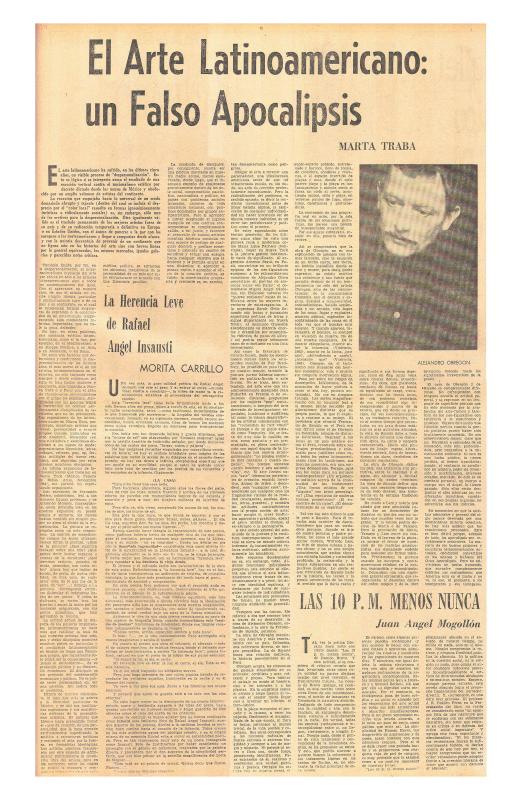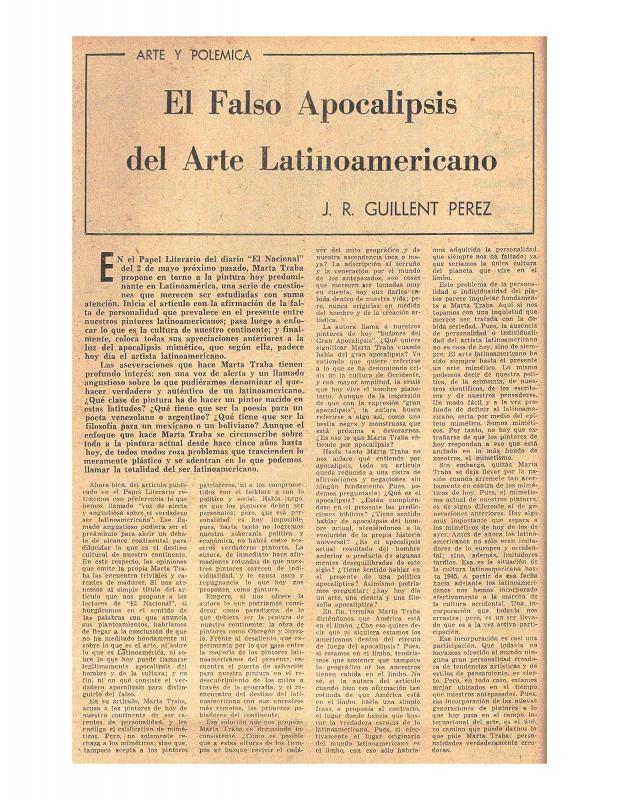Los Disidentes was a group established in Paris in 1950 by a number of Venezuelan artists and writers who lived in the city between 1945 and 1952. From the French capital they intended to challenge the official education provided by the Escuela de Artes Plásticas de Caracas, which was based specifically on landscape painting and nativist art. In the spirit of their name, Los Disidentes sought to breathe new life into traditional and academic art through an assimilation of the values espoused by European abstraction. Among the members in the group were the author of this text, J. R. Guillent Pérez (see also [doc. nos. 813478]), and the painters Alejandro Otero [doc. no. 813625], Pascual Navarro [doc. no. 813751], Luis Guevara Moreno, Carlos González Bogen [doc. no. 813695], Mateo Manaure [doc. no. 813569 and doc. no. 813583], Narciso Debourg [doc. no. 813597], Perán Erminy, Rubén Núñez, Dora Hersen, and Aimée Battistini. They were subsequently joined by other Venezuelan artists, such as Armando Barrios, Miguel Arroyo, Oswaldo Vigas, Omar Carreño, Alirio Oramas, and Régulo Pérez. They published a magazine, named after their group, Los Disidentes, which carried all their news, and appeared a total of five times.
In this essay, one can clearly appreciate how this thesis nurtures the intellectual character of Los Disidentes, the justification of their movement, the urgency of their commitment and the need to share this information with all the youth of Latin America. The group thereby defended a dissent against traditional values, advocating European abstraction, violence against cultures captured in tradition (whether people or institutions), and the passionate defense of such values and premises is conveyed by Guillent Pérez in a position almost of militancy. These reasons explain the texts and content published in their journal, as well as the vein in which the works were created by these artists. The “universalist” thesis, subscribed by the author and Los Disidentes, is sheltered by their search in encountering their “true” roots, which according to analysis, are found in the West. Accordingly then, the journey of Los Disidentes implies a search for “the truth.”
The then-student of philosophy Guillent Pérez, author of this essay, had dealt with the theme of Latin America vis-à-vis the West prior to the inception of Los Disidentes in the article “Teoría del conocimiento latinoamericano,” published in the Caracas-based El Nacional on July 18, 1947. He was not alien to the subject and his perspective on the Latin American world had already matured through contact with other Latin American artists in Paris, via discussions and talks, until reaching a high level when—after having settled in Caracas—in 1965 he participated in the polemics against Marta Traba, the Argentinean critic, based in Colombia; a circumstance wherein he found himself confronted by the publication of her article “El arte latinoamericano: un falso apocalipsis” [doc. no. 799377], and in his reply he expanded on the existentialist concepts on his thesis on “nihilism” (see “El falso apocalipsis del arte latinoamericano” [doc. no. 799219]).
This is the second section of the article “Lo latinoamericano y lo occidental,” published in the second issue of the magazine Los Disidentes. At the end of this text the phrase “To be continued” promises a third section that was never published.

